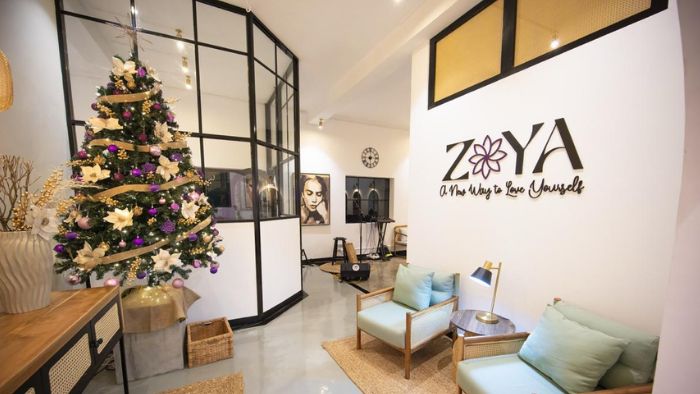Early Life
Ivor Sylvester Sunil Perera was born on the 14th of September, 1952, in Moratuwa. He was the second child of the lovely family of Anton Perera and Dorien Perera.

Sunil's knack for music bloomed at a very young age. His ten siblings, cousins and the rest of the family had good taste in music, so they'd often get together for partying, ballroom dancing and playing records on the radiogram.
This family background was Sunil's biggest influence and inspiration. He was only 11 when he started to play the guitar.
Amid music practices, Sunil continued his studies. He studied at St.Sebastian's College in Moratuwa until grade four, and then attended St. Peter's College in Colombo 04.
Initially, his father wished that his son would pursue higher studies and eventually become a doctor, but Sunil didn't have the right O/L results to proceed. He retook the exams privately, and when the results didn't improve the second time, Sunil's father asked him what he wanted to do with life. And that's when he told him about his love for music.
The Gypsies
The Gypsies is a creation of Anton; Sunil's father. Sunil, a young boy of 15, left the school in 1969 and joined The Gypsies. Initially, the band had seven members – three of his brothers, three of his cousins on his father’s side, and Sunil himself. Anton was 100% supportive of his son trying to build a career in music. He even arranged a studio for them to practise and provided all the help he could.

With lessons taken from Vincent Jayawardhane, a veteran guitarist at the time, Sunil was able to enhance his guitar playing skills. The band also had a teacher – Joy Ferdinando, who visited the studio to fine-tune the band, especially Sunil's younger brother on the keyboard. Furthermore, the band improved their harmony with the vocal lessons given by Loren Abeysekara, Lily Godridge and Maryanne David.
The Gypsies was heavily focused on Western music in the beginning, but after a couple of years, they realised that they can entertain more audience with Sinhala songs. So in 1973, they released their first Sinhala songs, Linda Langa Sangamaya and Amma Amma, which are two of their greatest hits of all time.
The "Baila Chakrawarthy"

With The Gypsies, Sunil Perera revolutionised the music industry. He took the local baila genre to the next level, with a number of killer songs, such as Kurumitto, Thaththa Mata Anapu Tokka, Uncle Johnson, Lunu Dehi, Oye Ojaye, Saima Cut Wela, Sumihiri Paane and Koththamalli. Thus he was often referred to as the "Baila Chakrawarthy" in Sri Lanka.
An honest, straightforward personality, Sunil Perera didn't hesitate to openly talk about many taboo topics, including sex and politics. He even had a wonderful way of conveying his thoughts about them, through simple and catchy lyrics, and interesting rhythms sung with his beautiful, deep voice. "Ethuma" and "I Don't Know Why" are two of the many good examples of that.

The Gypsies recently celebrated their golden jubilee, and even after five whole decades, they remain one of the most popular music bands in Sri Lanka. While mingling with the new technology and challenges in the industry, they're still going strong.

The dynamic, energetic nature of Sunil Perera had an amazing way of adapting to any room that he is in, or the crowd he is with. And that's why they're the highest-paid band in Sri Lanka, who make appearances at many events; concerts, weddings, parties and other functions.
The End Of An Era

Sunil Perera was hospitalised last month after being infected by COVID-19, but returned home after recovery. However, he was re-admitted to the ICU of a hospital recently, due to severe COVID pneumonia and passed away in the early hours of the 6th of September 2021. The loving husband of Geetha Kulatunga, and the father of four children, two sons and two daughters, he was only 68 when he died.
He enjoyed his years to the fullest, with much happiness, because he lived for something that brought him so much joy – music. He enjoyed his audience, as much as they enjoyed him and his music.
Goodbye, to the one and only Sunil Perera, the legendary Baila Chakravarthy, and the invincible pioneer of local band culture!






